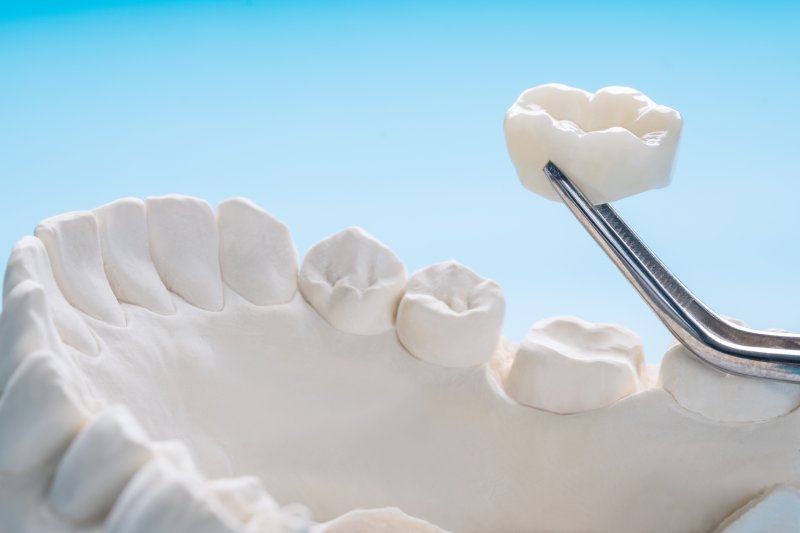
If you have a decayed or damaged tooth, then a dental crown is one of the best options for fixing your smile. These natural-looking restorations can preserve your pearly whites while also improving their appearance. After receiving your protective cap, you’ll typically need to undergo a temporary healing period. Keep reading to learn what to expect during your recovery from the dental crown procedure.
Numbness in the Mouth
Your dentist will begin your treatment by numbing your mouth with a local anesthetic so that you’re pain-free throughout the process. The medication will usually last several hours, meaning you’ll have to be careful about what you eat and how you bite down. The last thing you want is to accidentally burn or damage your mouth. Stick with soft foods and lukewarm beverages until the numbness goes away.
Soreness & Sensitivity
Once the anesthesia wears off, it’s normal to experience some mild soreness and/or sensitivity around your dental crown. While your mouth gets used to the restoration, you can simply take over-the-counter pain relievers or use analgesic medications. If you notice any problems or discomfort with your affected tooth, notify your dentist so they can fix the issue.
Maintaining Your Temporary Restoration
While waiting for your permanent dental crown, you’ll have to wear a temporary one to protect your altered tooth. This provisional cap will serve as a defense against bacteria and potential damage, but you’ll have to take good care that it doesn’t become ruined while you wear it. The best way to maintain your temporary crown is to avoid sticky, chewy, and hard food that can cause it to become loose.
Daily Oral Hygiene
After having your permanent dental cap placed, you’ll need to maintain your restoration just like you would a normal tooth. Brush twice daily, floss before bed or after every meal, and rinse with mouthwash every day to ensure food particles and plaque don’t accumulate. Remember to also visit your dentist every six months for checkups and cleanings, that way you’re less likely to experience complications down the road.
Recovering from dental crown treatment doesn’t have to be difficult! Keep the above tips in mind and you can be sure to make the most of your new and improved tooth for years to come!
About the Author
Dr. Hsia graduated from the Nova Southeastern University College of Dental Medicine and has undergone countless hours of continuing education. He is highly trained in a wide range of services, including dental crowns, and strives to provide exceptional results that you can trust. If you’d like to know more about recovering from your procedure or wish to schedule an appointment, don’t hesitate to visit our website or give us a call at 214-432-1133.




